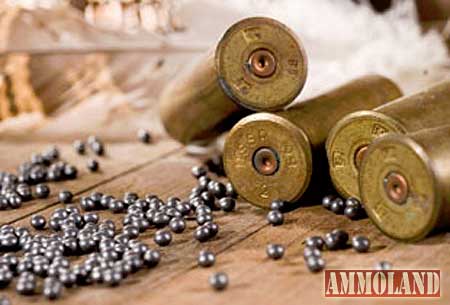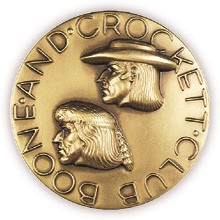Lead Bullets the Target of Anti-Hunting & Anti-Fishing Groups


MISSOULA, Mont.--(Ammoland.com)- Anti-hunting and anti-fishing interests are currently litigating against the Environmental Protection Agency (“EPA”) to force the EPA to expand its Toxic Substance Control Act (TSCA) authority in order to regulate traditional ammunition and recreational fishing tackle.
When the Act was established in 1976 Congress explicitly excluded from regulation any article subject to excise taxes — including pistols, revolvers, firearms, shells and cartridges.
The EPA has already once declined a petition that asked the agency to prohibit the manufacture, processing, and distribution in commerce of lead for shot, bullets, and fishing sinkers because it did not have the authority to do so under the TSCA.
Anti-hunting and anti-fishing interests assert the EPA does have the authority and that a lead ban is necessary to address the significant impacts to wildlife populations that are resulting from traditional tackle and ammunition.
The assertions made by the petitioning groups lack credible scientific foundation, especially when seeking a blanket ban on all lead use. Outside of the California condor, where every death is significant, there is no evidence of a lead crisis at the population level – an entire group of one species living in a specific area.
The biggest threat of lead in wildlife is with birds that have gizzards, which hold on to and grind up food, rather than pass it quickly through their systems.
Proponents of the ban cite the impacts on individual raptors, such as Bald Eagles even though raptor populations are increasing across North America and the Bald Eagle was removed from the Endangered Species list as recently as 2007.
If a complete ban on lead in ammunition where achieved it would have a dramatic negative impact, because of the increased cost of alternative metals, on the cost of ammunition, and therefore participation in hunting and recreational shooting, which in turn is the engine that drives most of the funding for conservation and wildlife management through the excise taxes paid on the purchases of ammunition.
Sportsmen groups have rallied to push forward the introduction of the Hunting, Fishing and Recreational Shooting Protection Act (S.838 & H.R. 1558), which will amend TSCA in a manner that serves to protect and enhance our hunting, recreational shooting and recreational fishing heritage while concurrently facilitating the important benefits that the hunting, shooting and recreational fishing industries contribute to the betterment of our nation’s economy and treasured natural resources.
The Act is now being discussed and considered in committees. To learn more: https://www.govtrack.us/congress/bill.xpd?bill=s112-838
About the Boone and Crockett Club:
Founded by Theodore Roosevelt in 1887, the Boone and Crockett Club promotes guardianship and visionary management of big game and associated wildlife in North America. The Club maintains the highest standards of fair-chase sportsmanship and habitat stewardship. Member accomplishments include enlarging and protecting Yellowstone and establishing Glacier and Denali national parks, founding the U.S. Forest Service, National Park Service and National Wildlife Refuge System, fostering the Pittman-Robertson and Lacey Acts, creating the Federal Duck Stamp program, and developing the cornerstones of modern game laws. The Boone and Crockett Club is headquartered in Missoula, Montana.
